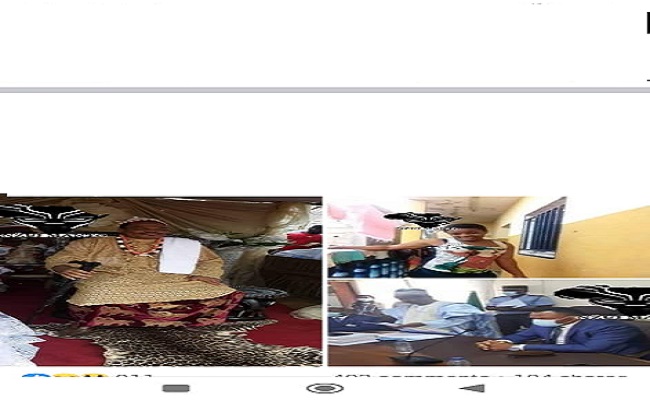While resolving the conflict in Southern Cameroons, we can’t lose sight of child victims
Ottawa announced last month that it has been leading discussions between the government of Cameroon and separatist groups, which have been in a conflict that has violently escalated in recent years. After the announcement, the Cameroonian government stated it was not working with an external mediator. Previous attempts by Switzerland and the Vatican to bring about peace talks in Cameroon have failed.
“Peace processes are always messy and take time, and this is a conflict that has been going for 40 years,” stated Foreign Affairs Minister Mélanie Joly. Canada was seen as an ideal interlocutor because its Constitution accommodates both anglophone and francophone traditions, it has no colonial-era baggage or significant economic interest in the country, and it has long-standing diplomatic ties to Cameroon.
The crisis in the North-West and South-West regions began in late 2016, when Cameroonian security forces were accused of using excessive force against peaceful demonstrators, led by teachers and lawyers who were protesting the perceived marginalization of the country’s minority anglophone education and legal systems. Dialogue between the government, teachers and lawyers at the early stages of the crisis failed. The crisis escalated when separatist fighters used violence, restricting access to education, and put pressure on the government for political recognition and independence for the English-speaking regions. A Major National Dialogue in 2019 was greeted by many as a great first step, but it wasn’t enough. The use of military means to combat the separatist fighters has only escalated the violence, with civilians caught in the middle.
The UN estimates that the violence since the protests began has claimed more than 6,000 lives and has kept 600,000 children out of school. At least 800,000 people have fled their homes and are internally displaced or refugees in other countries. Attacks by armed separatist groups on students, teachers and schools in Cameroon’s North-West and South-West regions since 2017 have had an enormous impact on children’s education. This devastating reality has made the children of Cameroon more vulnerable to abuse, exploitation and violence.
The advocacy network Watchlist on Children and Armed Conflict estimates that less than 18 per cent of peace agreements globally have included child-protection provisions. To end the cycles of violence we need to be able to ensure children’s issues and rights are not only embedded in peace agreements, but also become integrated into the entire peace mediation process. This would allow for unique opportunities to shape a joint vision for the future of a conflict-affected country.
Canada and Cameroon both have an opportunity to reinforce commitments to the protection of children. In 2018, Cameroon endorsed the international Safe Schools Declaration, which Canada has also endorsed, and the Vancouver Principles on Peacekeeping and the Prevention of the Recruitment and Use of Child Soldiers, which Canada spearheaded. These commitments focus on the importance of protecting children from violence and ensuring access to education.
Unfortunately, for the children of Cameroon, this conflict in the North-West and South-West regions is not the only concerning exposure to violence that exists. Boko Haram, in the Grand North region bordering with Nigeria, has been accused of recruiting and using children in violence since 2014. Exposing children to violence can increase the likelihood that they will engage in violent behaviour in the future. Preventing recruitment and use in the first place is therefore paramount to breaking cycles of violence.
While national-led peace processes are critical, lessons from other contexts and best practices are essential. International calls for dialogue between the separatist groups in Cameroon and government authorities need to take place. If the leaders of all sides involved fail to prioritize the protection of children in the peace process, this will have a negative impact on future generations.
The children of Cameroon deserve the opportunities we all wish for our children, to live in peace and harmony so that they may reach their full potential. Now that we are in Black History Month, it is important to recall the wisdom of Martin Luther King, who said, “The ultimate measure of a man is not where he stands in moments of comfort and convenience, but where he stands in times of challenge and controversy.” Let us stand collectively for children, peace and security in Cameroon, Canada and everywhere.
Culled from Globe and Mail





